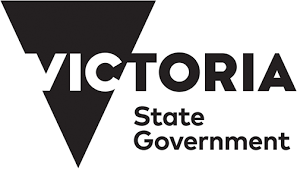
- This event has passed.
BioBreakfast: Innovative medtech manufacturing for personalised, customised medical devices
September 4, 2018 @ 7:30 am - 9:00 am AEST
Event Navigation
This BioBreakfast will explore enhancing customisation in medtech manufacturing with a focus on implantable and personalised medical devices.
Jason Aldworth, Co-Founder & Chairman of 3DMEDiTech will deliver a keynote presentation on 3D Printing for healthcare manufacturing. An expert panel session will follow to discuss advances in medtech manufacturing that are enabling efficient, affordable and scalable production & delivery of medical devices, and will also address the challenges of increasing personalisation, complexity and customisation of medical devices.
The event will feature the innovative manufacturing capabilities in Victoria that can help improve the health and wellbeing of people across the world through globally competitive, technologically advanced, supply chains.
Event details
Date: Tuesday 4th September 2018
Time: Registration from 7:20 am for a 7:30 am networking breakfast; 8:00–9:00 am – Presentation and panel discussion
Venue: The Cube, ACMI, Federation Square, Melbourne
Price: $65 BioMelbourne Network members; $130 non-members (Prices include GST; check if your organisation is a member here)
Speaker: Jason Aldworth, Co-Founder, Chairman – 3DMEDiTech
Panellists: Dr Danielle Kennedy, Director, Active Integrated Matter Future Science Platform; Alex Kingsbury, Managing Director, Additive Economics; Prof. Mark Cook, Director of the Graeme Clark Institute
This event is sponsored by:

About our speakers:
Jason Aldworth, Co-Founder and Chairman, 3DMediTech
3DMEDiTech entirely focuses its R&D program on reengineering analogue devices which are high volume and will clinically benefit from the complete digitisation and automation of the design, customisation, fabrication and supply-chain processes.
3DMEDiTech’s first live products in market include SmileStyler, an aesthetic orthodontic clear aligner system created for GP Dentists, and Serkel, a plagiocephaly helmet created for Paediatric Orthotists.
Jason has worked as a regulatory and corporate affairs specialist for most of his career, and is also a Director of regulatory affairs consultants The Civic Group. He holds a Bachelor of Laws and a Bachelor of Arts from the University of Queensland. Jason is also a Full Member of the Australian Market and Social Research Society and is a member of the MTAA’s Regulatory Affairs Committee.
Dr Danielle Kennedy, Director, Active Integrated Matter Future Science Platform
Dr Kennedy obtained her Doctor of Philosophy (PhD) in Chemistry from the University of New South Wales (UNSW) Sydney, Australia 2007. In 2008 Dr Kennedy joined CSIRO as a postdoctoral fellow, Dr Kennedy became a Research Scientist in 2013, Senior Research Scientist and Team Leader in 2015 and is currently the director of the Active Integrated Matter Future Science Platform.
Dr Kennedy's individual research interest is in coupling automated robotic techniques, rapid screening methods and Synchrotron characterisation to fast track materials discovery in porous and catalytic nanomaterials. This high-throughput research platform allows the study of more examples of materials classes than ever before allowing us to make more considered investigations and gain broader understanding of the nature of the materials studied, tackling bigger research challenges like the development of catalysts which improve the energy efficiency and economics of the production of commodity chemicals and is on the editorial board of Chemical Industry and Engineering.
Alex Kingsbury, Managing Director, Additive Economics
Prior to Additive Economics, Alex was the director of CSIRO’s Additive Manufacturing Innovation Centre ‘Lab 22’, and previously, the Research Lead for Additive Manufacturing. In those roles Alex oversaw the establishment of the innovative Lab 22 project that provided industry access to five differing additive technologies: electron beam melting, laser melting, laser cladding, binder jetting and cold spray. She was also responsible for implementing the Lab 22 industry engagement program where partner companies accessed and learnt additive technologies. An important component of Alex’s role was leading license agreement negotiations and overseeing CSIRO's additive manufacturing intellectual property portfolio. She has worked more broadly in metal technologies including additive manufacturing since 2011, specifically with a focus in the area of metal powders for additive manufacturing.
Alex’s earlier career was focused on the development of feasibility studies, techno-economic and commercialisation readiness assessments, in both an industry and research organisation context. She specialises in bringing new technology to market and can comfortably work across industry, R&D, and translation between the two.
Prof. Mark Cook, Director of the Graeme Clark Institute
My specific scientific and clinical expertise has created a unique opportunity to take a leadership role in developing translational research to the treatment of intractable epilepsy. My aim has been to develop a basic and translational research program focused on epilepsy and other neurological diseases to drive the development of collaborative clinical research infrastructure that crosses disciplines.
My objectives have included the development of new and innovative imaging processes, basic cell biology in epilepsy and the neurophysiology of epilepsy. Over the last 5 years we have made significant inroads into developing therapeutic electrical stimulation strategies for the treatment of epilepsy, of proven effect in animal models and now being explored in humans.
In addition, large groups of physical scientists have been brought into human and animal research, and further developing these links is a key aim. This has been achieved not only through the main work of my laboratory but also through increased collaboration with other University of Melbourne based research groups, supported by Australian Research Council (ARC) and National and Health Medical Research Council (NHMRC) funding. Insights and therapies developed through my research have been translated into practice now, and by utilizing a diverse group of collaborators to enhance the translation of developing research outcomes into health practice, leveraging existing but isolated national resources to create an internationally competitive, clinically- focused research infrastructure.



